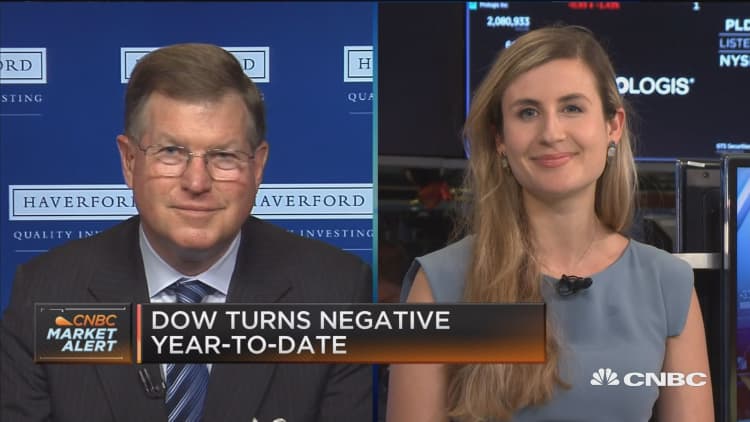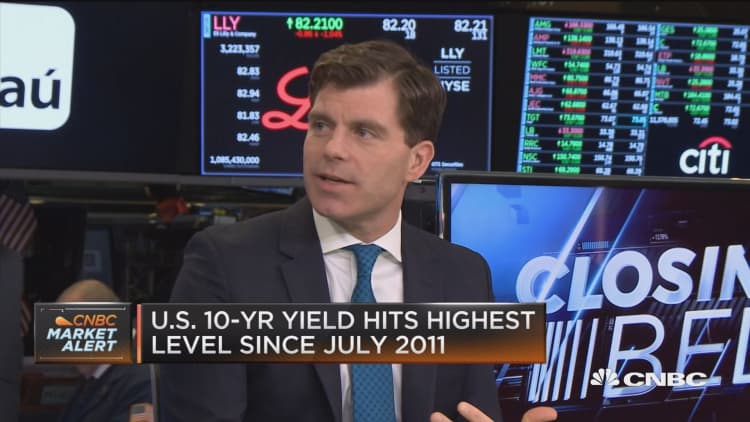
The 10-year Treasury yield can get to 3.5 percent with "no trouble at all" for stocks, strategist Samantha Azzarello told CNBC on Tuesday.
The benchmark U.S. 10-year Treasury yield, which moves inversely to its price, hit 3.09 percent on Tuesday, its highest read since 2011.
"You get up to 4 percent and we think that starts to be punitive for stocks," Azzarello, global market strategist at J.P. Morgan Asset Management, said on "Closing Bell."
Equities dropped sharply on Tuesday, with the Dow Jones industrial average falling 193 points to close at 24,706.41.
Michael Yoshikami, founder and CEO of Destination Wealth Management, also isn't too concerned about the 10-year Treasury yield's move higher because it hasn't been a steep rise.
"If you look at history, if rates go up we're OK as long as we have economic growth, which we do right now," he told "Closing Bell."
"It's all about how steep that increase is. At this point it's nothing to be concerned about, but certainly something to monitor."

The 10-year yield is especially important to investors given its role as a barometer for mortgage rates and other financial instruments.
The two-year yield hit a high of 2.589 percent, its highest level since Aug. 11, 2008.
In this environment, Yoshikami likes financials, which he said tend to do well in a rising rate environment, and technology, which will benefit from lower tax rates.
And while everyone is "bashing" fixed income, he sees an opportunity.
"If you're going to get 3 percent on a 10-year Treasury with essentially no equity risk, it actually starts to have some appeal," Yoshikami said.
Same goes for the two-year note, he added, which has "zero volatility" as long as investors hold it for those two years.
— CNBC's Fred Imbert and Thomas Franck contributed to this report.


